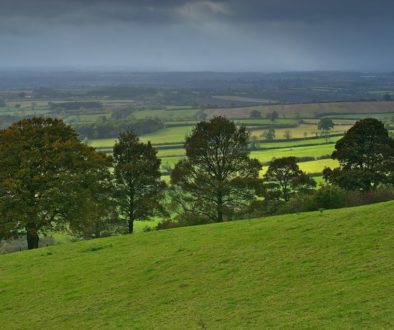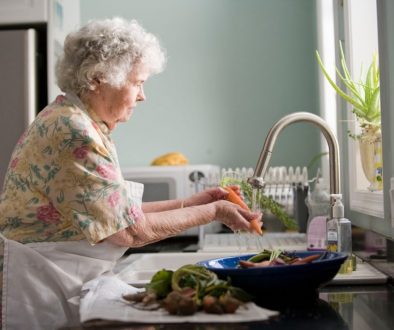How social enterprise boosts rural services
Often referred to as ‘businesses with social objectives with any profits usually reinvested in the local community’, many social enterprises do not necessarily recognise or associate themselves within this definition. A social enterprise may operate a community centre, charge a fee to provide a childcare facility and also draw down grant funding or raise money to sustain all of the other activities taking place at the centre; blurring the boundaries between trade, charity and local groups. The concept of ‘social enterprise’ itself is not new as an operating model – it can be traced back to 1841 with the formation of the first industrial co-operative society in Rochdale. However, the ongoing requirement amongst Local Authorities to balance community need with available funds has presented particular opportunities and challenges for social enterprises and other community based businesses in rural areas. Jessica Sellick investigates.
Many rural social enterprises have been set up or expanded since public bodies were asked to transfer more power to people and communities: from the Open Public Services White Paper and arm’s length bodies reform, to the Big Society and Localism and Decentralisation. This transferral of power to communities is not new – the idea of ‘Public Service Transformation’ can be followed back to the introduction of the Welfare State in the 1940s. Since then, there has been an ongoing requirement to balance public need with available funds – even more so with the recession and economic downturn. In some instances this has seen a shift from ‘Government’ to ‘Citizen Focused Service Delivery’. In a rural context, social enterprises are well placed to build upon their traditional strengths such as mutual knowledge, sense of community and social cohesion as well as deliver place based social value. Indeed, allotments, village halls, land, village shops, pubs, farms and other rural assets have transferred into community ownership. This is not to say that innovative and self-reliant social enterprises in the countryside have not drawn upon approaches developed for urban areas (e.g. social investment, asset transfer, new town movements) and vice versa. Regardless of the terminology and descriptions used, the pace of change since the recession and economic downturn has undoubtedly impacted upon the role of social enterprises – leading them (in a rural context) to expand out of their small scale ‘local community space’ into the mainstream and to endure over time. This has opened up a series of discussions and debates around: whether we are waiting for social enterprises to emerge, that supporting them happens in a haphazard way despite great work from a range of organisations, and if more can be done to pro-actively seek their conception and development in rural areas. What more can be done to support social enterprises in rural communities? I offer five points.
Firstly, how much advice, support and funding is already out there? If you look across the UK, there appears to be a plethora of business and funding support streams available in England and Scotland. In England, despite the closure of Business Link, new support has emerged from the Big Society and Localism agendas. In Scotland it can often appear as a crowded marketplace. Yet advice and support in Northern Ireland is sparse. In Wales, the quality of provision is considered to be high, with social enterprises outperforming traditional SMEs in many rural settings. However, what is available – particularly in England and Wales – is often fragmented (geographically and sectorally). For example, if you live in a rural community and want to set up a social enterprise (i.e., to take on the running of a shop, pub, park or deliver a new service) where would you look first? There are many different ways of signposting people to social enterprise resources. In Northern Ireland the website ‘Social Enterprise NI‘ acts as a one stop shop for social enterprise, providing a comprehensive resource, with the content managed by a consortium of social enterprises and entrepreneurs. In England, communities may approach the voluntary and community sector (particularly the Plunkett Foundation or a Rural Community Council/ACRE). Scotland has a comprehensive directory of support – with much of the information disseminated by public bodies (e.g. the Scottish Government’s economic and community development agencies). In Wales, there is a wealth of information to support communities. Across the UK with lots of providers offering information and support it can be a maze in looking where to go in the first instance, and the support you end up receiving can depend on where/how you’ve entered the maze.
Second, if social enterprise is important, is there value in providing specific specialist help to them in rural places? Some policy, decision makers and funders for example are not persuaded on the need for specialist business support for social enterprises in the countryside. In Wales, for example, support could be mainstreamed through Business Wales and Finance Wales. In England, however, policy makers keen to increase the role social enterprise plays in the delivery of public services. Specialist help needs to take into account the additional costs of delivering services in the countryside – the so called ‘rural premium’ linked to the sparse nature of settlements, lack of access to basic infrastructure and low critical mass of people. Specialist help also needs to recognise how much many rural residents already do to deliver services to support their local community (often informally and on an ad-hoc, responsive basis). Whether residents will want to become more active partners in the formal planning and delivery of public services – including setting up a social enterprise as a delivery vehicle to do so – may be open to debate.
Thirdly, what makes a rural social enterprise successful? While there can be a tension between ‘running a business’ and ‘doing local community good’; social enterprises are seen as a way for communities to come together, join in and provide products and services they need to improve their lives. In a rural context, there is perhaps a greater sense that social enterprises more fully consider their impact on other organisations and businesses doing similar activities (i.e., so a group looking to set up a social enterprise to provide childcare will ask ‘what about X business based locally, or y person, she looks after children and might not be happy’). Some ‘key ingredients of success’ include: adequate finance and business planning, ensuring social enterprises are recognised in public service delivery procurement and commissioning, having an openness to local community and service user involvement, and having capacity and leadership. Examples include Central Surrey Health and GLL, with the Plunkett Foundation announcing the six winners of their first ever UK Rural Community Ownership Awards 2014 to celebrate the committed teams of people who come together to deliver vital services to their community.
While these examples and case studies illuminate good practice and lessons learned, what is often lacking is an ‘active narrative’ and interaction in real time so other rural communities can understand how issues play out in practice. There also appear to be few references to social enterprise schemes that have failed to come to fruition or have ceased to operate. Perhaps there could be opportunities to share failure and challenges as well as success to prevent other social enterprises making similar mistakes?
Fourthly, what are some of the issues and challenges facing rural social enterprises? Funding and access to finance can be an issue; with some funders perferring projects with tangible, physical outcomes (e.g. awarding a capital grant for a new community building) rather than providing the very support groups need to set up and develop a social enterprise (e.g. feasibility, research, business planning, cash flow etc.). What is often needed is funding and support to animate and develop social enterprises. There are some concerns around the ability of social enterprises to achieve sustainability (particularly in a rural context where they may face particular difficulties in having a small market, lacking access to business support, poor quality broadband/mobile phone coverage and where local people who are the driving force are difficult to replace particularly as retirement age rises). Other issues include: ‘fiscal dumping’ wherein councils are making assumptions about the capacity of communities to absorb responsibilities for functions that would have sat with district and county councils, inflexible procurement and commissioning processes and risk aversion.
Fifth and finally, where next? How can social enterprises contribute further to sustainable rural communities? There are opportunities to share practice around social enterprise between England, Scotland, Wales and Northern Ireland (and at a European level). At a country level, there are opportunities for voluntary community, public and private sectors to work more closely together to collaborate integrate and build on local knowledge and local links. This is no substitute for personal narratives and hearing about people’s experiences of setting up, running or expanding a social enterprise first hand. At a recent LGA/RSN Rural Conference, there was a ‘knowledge exchange’ where people interested in how social enterprise can help communities to run a pub, shop, farm, village hall or community centre could book a 10 minute appointment to meet a rural resident who’s already done that and made it work in their rural community. This inspired some delegates to go back and think about doing something similar in their own locality. Undoubtedly understanding the ‘life-cycle’ of rural social enterprises (how they reinvent themselves, why they decline, what support they need at different stages of the cycle) could help even more rural residents write their own economic regeneration story.
Jessica is a researcher/project manager at Rose Regeneration; an economic development business working with communities, Government and business to help them achieve their full potential. She recently supported 7 existing LEADER partnerships and 2 new groups with their bids to deliver LEADER 2015-2020. She is currently providing Local Authorities with resources to measure their ‘Social Return on Investment’ as well as carrying out research for the Lottery on community businesses. Jessica has previously undertaken a study on where ‘Big Society’ initiatives are working well (for Defra) and has published a case study of Jubilee Park in Local Economy. She can be contacted by email jessica.sellick@roseregeneration.co.uk or telephone 01522 521211. Website: www.roseregeneration.co.uk Twitter: @RoseRegen


